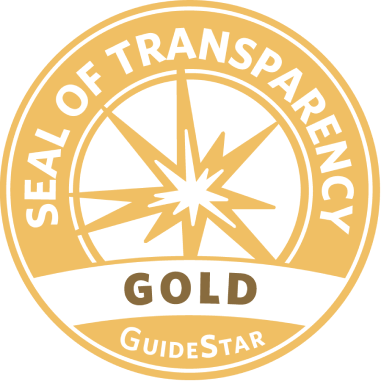In an increasingly interconnected world, the ability to advocate for oneself and one’s community on a global scale has become essential. English, as the global lingua franca, plays a critical role in enabling individuals to raise their voices, share their stories, and fight for change. For marginalized individuals, particularly young women, English proficiency opens doors to a wider audience and transforms them into effective advocates for their rights and causes.
At Omid Foundation, we have witnessed the transformative power of English education in empowering young women to speak out on the world stage. This article explores how mastering English equips individuals to become powerful advocates, amplifies their voices in global discussions, and drives meaningful change in their lives and communities.
The Power of Advocacy
Advocacy is about amplifying voices and driving action. Whether it’s fighting for gender equality, climate justice, or access to education, advocacy allows individuals to highlight critical issues, challenge injustices, and mobilize support. However, in a globalized world, effective advocacy often requires the ability to communicate in English.
English is the primary language used in international forums, from United Nations conferences to human rights organizations. It is the medium through which global campaigns, petitions, and awareness programs are often conducted. For young women from marginalized communities, English proficiency is a gateway to these platforms, enabling them to participate in conversations that shape policies and influence public opinion.
Breaking Barriers to Global Participation
For many marginalized individuals, systemic barriers such as poverty, gender discrimination, and lack of access to education limit their ability to participate in global discussions. Without English proficiency, they may struggle to connect with international organizations, access critical information, or share their perspectives with a global audience.
At Omid Foundation, we address these barriers through targeted English education programs. Our goal is not only to teach language skills but also to empower participants to use those skills to advocate for themselves and their communities.
For example, one of our graduates, Roya, grew up in a community where women’s voices were often silenced. After completing our English program, she gained the confidence and skills to participate in an international webinar on women’s rights. Her story inspired other participants and highlighted the challenges faced by women in her region.
Mastering the Language of Change
Effective advocacy requires more than just language proficiency; it demands the ability to articulate ideas persuasively and connect with diverse audiences. Omid Foundation’s English programs focus on equipping participants with practical communication skills, including public speaking, writing, and negotiation.
Participants learn how to draft compelling advocacy materials, such as speeches, letters, and social media posts. They also practice delivering presentations and engaging in debates, building the confidence needed to speak out on global platforms.
Through these programs, young women not only master the mechanics of the English language but also develop the ability to craft powerful messages that resonate with international audiences.
Sharing Stories to Inspire Change
Storytelling is one of the most effective tools for advocacy. Personal stories have the power to humanize complex issues, evoke empathy, and inspire action. However, language barriers often prevent marginalized individuals from sharing their experiences on a global stage.
English proficiency enables young women to tell their stories to a wider audience. Whether it’s through blogs, social media, or public speaking engagements, they can share their lived experiences, shed light on systemic injustices, and rally support for their causes.
At Omid Foundation, we encourage participants to use their voices to share their stories. One such participant, Fatemeh, wrote an article in English about her journey overcoming educational barriers. The piece was shared widely online, attracting the attention of an international organization that invited her to speak at a youth conference.
Fatemeh’s story not only highlighted the challenges faced by young women in her community but also inspired others to take action.
Connecting with Global Advocacy Networks
English proficiency allows individuals to connect with global advocacy networks, collaborate with like-minded activists, and participate in international campaigns. These connections provide access to resources, mentorship, and platforms that amplify their voices.
For instance, through our English programs, participants at Omid Foundation are introduced to international organizations working on issues such as women’s rights, education, and social justice. They learn how to engage with these organizations, contribute to their initiatives, and build alliances that strengthen their advocacy efforts.
One of our graduates, Leila, used her English skills to join a global youth network advocating for climate action. She now collaborates with activists from around the world, contributing to campaigns and raising awareness about environmental issues in her community.
Accessing Knowledge and Resources
Advocacy is rooted in knowledge. To effectively fight for change, individuals need access to accurate information, research, and tools. Much of this information is available in English, making language proficiency a critical asset.
Omid Foundation’s programs equip participants with the skills needed to access and interpret English-language resources. Whether it’s reading reports from international organizations, participating in online courses, or attending global webinars, our graduates are empowered to deepen their understanding of key issues and use this knowledge to strengthen their advocacy efforts.
Inspiring Collective Action
Advocacy is not just about individual voices; it’s about mobilizing collective action. English proficiency enables young women to connect with their peers, build coalitions, and lead movements that drive change.
At Omid Foundation, we emphasize the importance of collaboration in our programs. Participants learn how to organize events, create campaigns, and engage with diverse audiences. These skills enable them to inspire collective action within their communities and beyond.
For example, one of our participants, Narges, used her English skills to organize a virtual panel discussion on women’s education. The event brought together speakers from different countries and sparked a meaningful conversation about the importance of empowering girls through education.
Stories of Transformation
The impact of English education for advocacy is best illustrated through the stories of our graduates. One such story is that of Zahra, who joined our program with limited English skills and a passion for social justice. Through her studies, she developed the confidence to speak at an international forum on gender equality. Her speech resonated with the audience and led to new opportunities for collaboration with global organizations.
Another inspiring example is Maryam, who used her English skills to start an online campaign advocating for child rights. Her campaign gained traction, attracting support from international donors and creating tangible change in her community.
These stories highlight the transformative power of language education and the resilience of young women in the face of adversity.
A Call to Action
At Omid Foundation, we believe that every young woman deserves the opportunity to speak out on the world stage. By supporting our English education programs, you can help us empower more young women to become advocates for their rights and causes.
Your contributions enable us to provide resources, mentorship, and training that transform lives. Together, we can create a world where every voice is heard, and every individual has the tools to drive meaningful change.
Conclusion
English for advocacy is about more than learning a language—it’s about finding a voice, building confidence, and making an impact. At Omid Foundation, we are proud to empower young women to use their English skills to advocate for themselves and their communities.
As we continue our mission, we remain committed to the belief that every young woman has the potential to become a changemaker. By investing in English education, we are not just teaching a skill; we are unlocking the power of advocacy and transforming lives.

